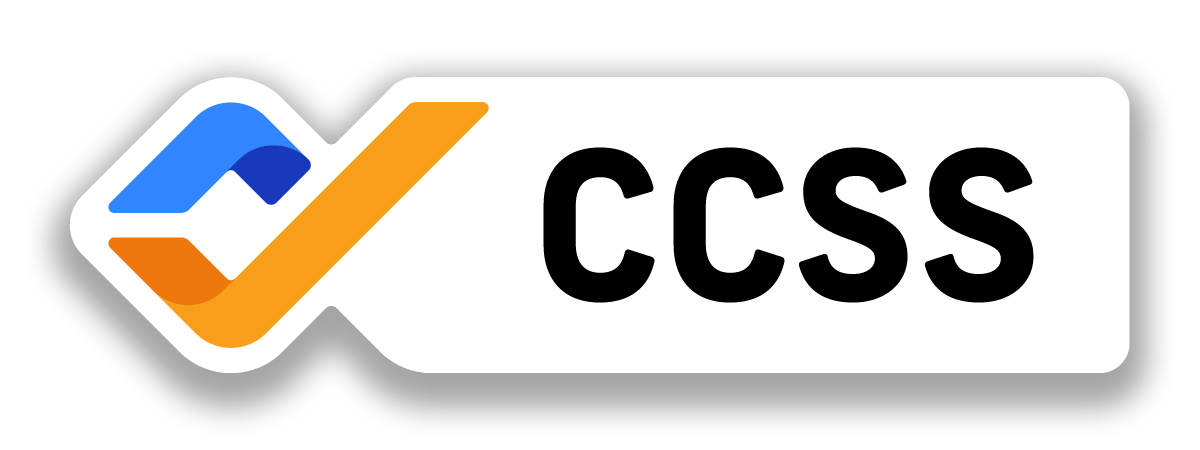What Is a Cryptocurrency Wallet? And What Kind Should You Get?
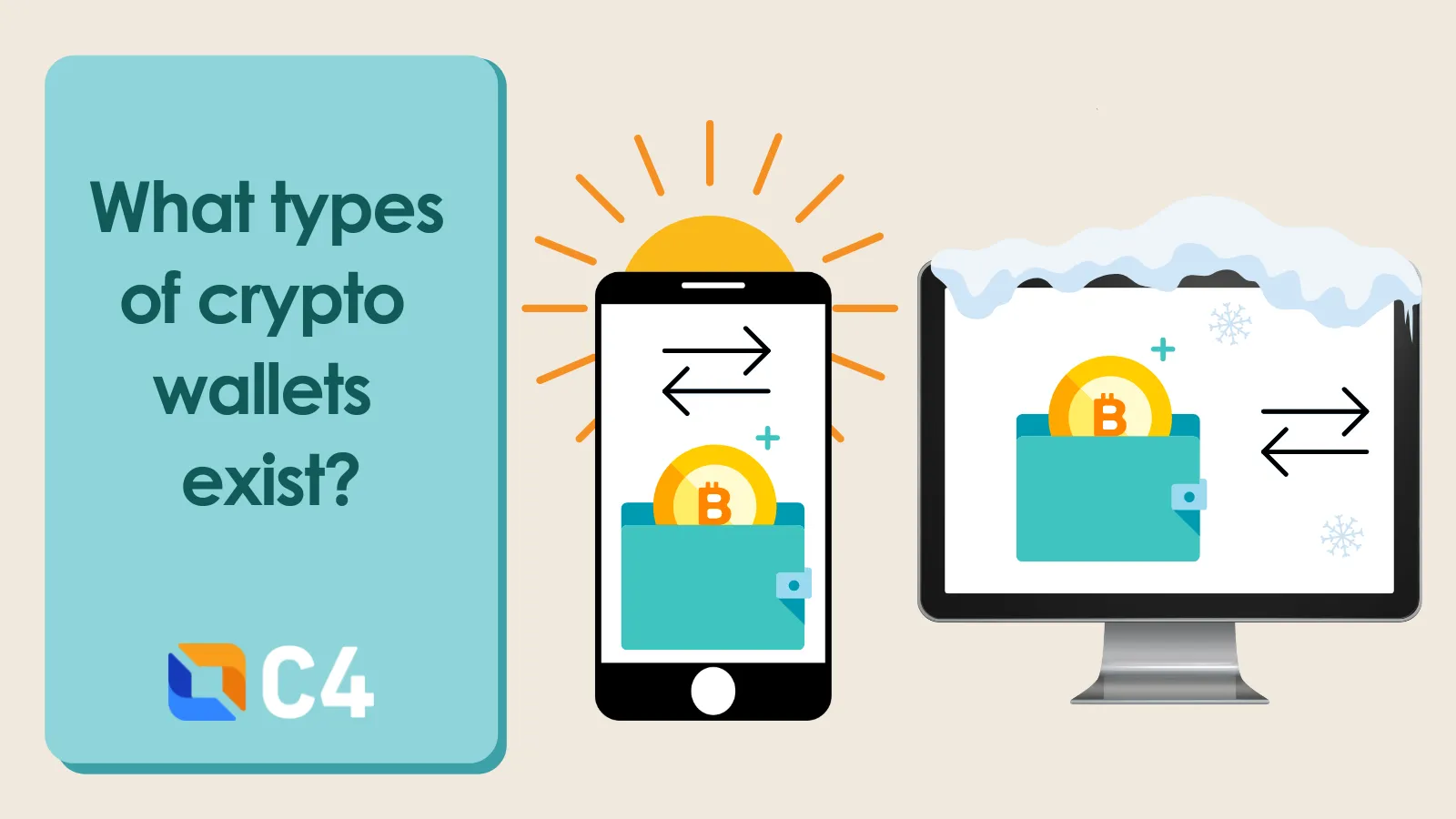
If you want to begin holding cryptocurrency, one of the first things that you will need to do is set up a wallet. But what is a wallet? Do you want a hot or cold wallet? And how do you safely download and/or purchase a crypto wallet?
When you think of a wallet, you may think of the envelope-like material you keep in your pocket or purse to hold your money. While a crypto wallet can keep your money safe, it does not contain a physical currency you can touch. However, it does allow you to access your crypto using your private key.
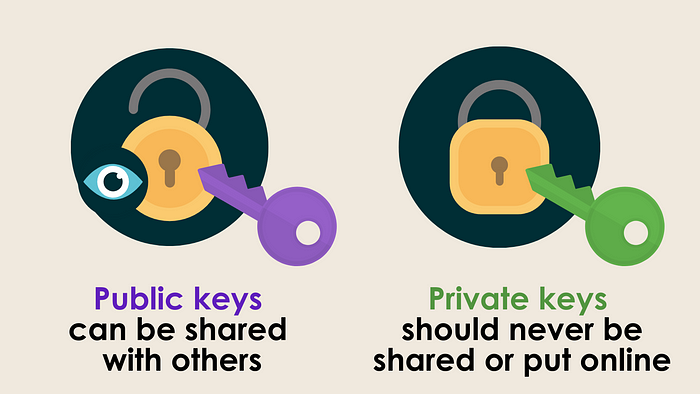
Public keys can be shared with others. Private keys should never be shared or put online.
You might be asking yourself, what are keys? First, it is essential to know that there are private and public keys. Your public key is like a bank account number in that it can be shared with others, money can be deposited to it, and can only be removed through authorization. (This is a simplification; if you want to learn more, check out C4’s study materials ) Private keys can be compared to your bank password that gives you access to authorize withdrawals. Your private keys provide you with access to your cryptocurrency and should never be shared with others or put online. In other words, the private key is to be seen only by the person who owns the address to keep your currency safe.
Because cryptocurrency is digital, your crypto isn’t physically in your wallet. Instead, using your private key gives you access to send and receive your crypto.
There are different wallets, and the type of wallet/s you use to hold your crypto will vary depending on your needs. Simply put, a wallet can be hot or cold.
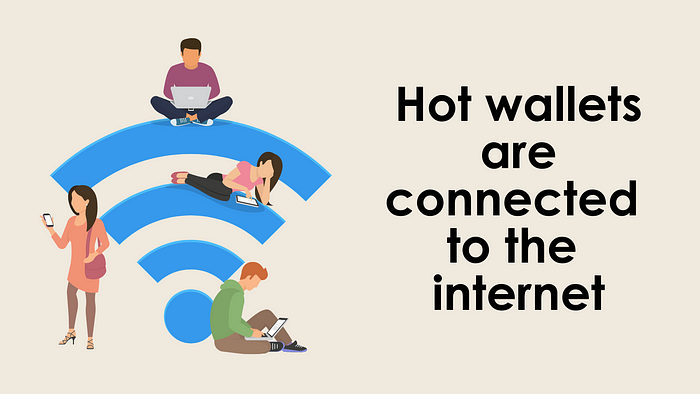
Hot wallets are connected to the internet.
A hot wallet is connected to the internet. They are usually run by a third party, and your keys are kept in their database. This makes storing and accessing keys very easy. Log in to the database, and you can send your crypto in moments. However, hot wallets come with some risks. Because hot wallets connect to the internet, your crypto is vulnerable to hackers. Therefore, it is recommended that you do not leave more money in your hot wallet than you would have in a physical wallet.
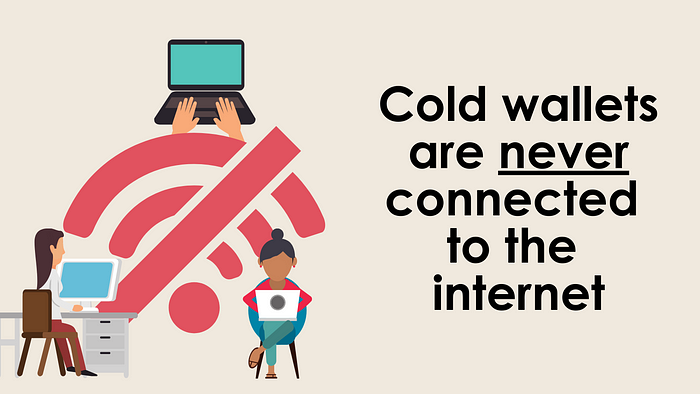
Cold wallets are never connected to the internet.
On the other hand, a cold wallet, also known as a hardware wallet, is not connected to the internet and is used to store your keys and addresses offline. One of the advantages of cold storage is that you don’t need to worry about your private keys being stolen online. You should keep your cold storage in a safe location. The most significant risk to a cold wallet is your own forgetfulness.
Whether you choose a hot or a cold wallet, you will need to keep a backup to your wallet, a list of words called a seed. Write these words down multiple times and keep them in secure locations. These words will protect you, so you don’t lose access to your cryptocurrency.
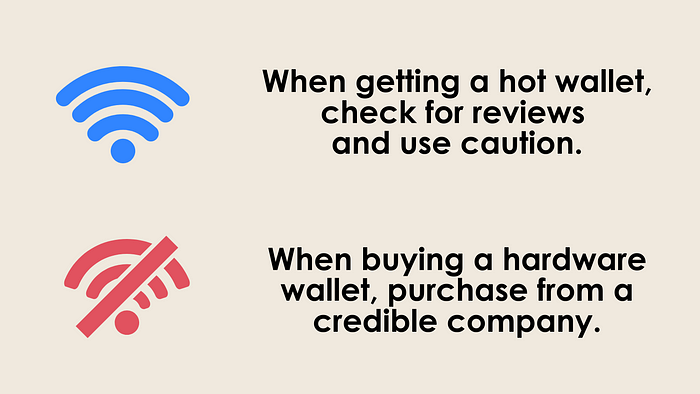
When getting a hot wallet, check for reviews and use caution. When buying a hardware wallet, purchase from a credible company.
No matter which wallet or wallets you use, you should always ensure that you safely acquire them. If you are downloading a hot wallet to your phone, make sure you check reviews, number of downloads, and be careful. If you’re purchasing a cold wallet, make sure you buy from a credible company’s website and check your package for tampering.
Ask a trusted friend for help if you need more information about which wallet might work best for you, but remember never to share your private keys! If you don’t have a trusted person who can help you with what wallet might be right for you, the below links may be helpful.
Stay safe out there, friends!
Disclaimer
The information presented in this article is for educational and informational purposes only. It does not constitute financial advice, investment recommendations, or any form of endorsement.
The views and opinions expressed by individuals in this article are solely those of the speakers and do not necessarily represent those of C4 or any other organizations with which they are affiliated.
The mention or inclusion of any individuals, companies, or specific cryptocurrency projects in this video should not be considered as an endorsement or promotion.
Regulations and legal frameworks around cryptocurrencies may vary in different jurisdictions. It is your responsibility to comply with the applicable laws and regulations of your country or region.
